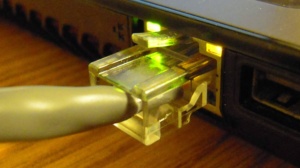Cisco now paying the price for not entering the FX and electronic trading industry
Cisco is about to let 14,000 staff go worldwide. Would this be the case if it had followed its pioneering peers into the electronic trading business?

It is more than fair to say that London’s main industry is the financial sector, and all of the ancillary business that surrounds and supports it.
For this reason, large global providers of network infrastructure which served their commercial interests properly would have long ago aimed their services via specialist divisions at the development and provision of high quality networks to the electronic trading sector, be it banks that connect their Tier 1 liquidity solutions to prime brokerages, or be it market infrastructure that conveys non-bank FX order flow between brokerage, Equinix’s LD4 data center and the live market.
Cisco, a company that back in the days of 10 bit 2 bayonet connectors and PBX switches, committed certain resources toward the financial sector, with bank desks such as UBS and HSBC having both had watertight contracts with Cisco for switching hardware 25 years ago, has not furthered its concentration on the financial markets sector in the way that certain other connectivity and networking firms have, and is now paying the price.
Within the forthcoming few weeks, Cisco is due to make 14,000 redundancies globally. Last year, the company made a pledge to invest $1 billion into the UK economy, adding 200 new staff to offices in London which were recently opened.
This was a very expensive and late entry into a city in which market infrastructure and top quality connectivity is the lifeblood of the interbank, institutional and retail electronic financial services business that London is home to.
BT Radianz (or British Telecom as it was known when I configured routers and servers, and led projects for deployable applications for bank trading desks on an outsourced basis at the start of my career in 1991) did this right.
The company concentrated heavily on providing financial markets connectivity infrastructure back in the days when I was an apprentice software and network engineer there 25 years ago, and continues to do so today.
As a result, BT Radianz has a community that is made up of many thousands of financial user locations around the world and is the largest secure networked financial community globally, far larger than Canada’s TMX Atrium which serves many top level executing venues and has points of presence connections between Moscow and Frankfurt, Moscow & London, and London and Paris.
BT Radianz has stuck to its well proven ethos of not requiring corporations to have to invest in private point-to-point network connections to reach existing and new customers, therefore the BT Radianz Provider service ensures quick and easy access to that community so that companies can distribute their services and applications reliably and securely to more users than ever before, both domestically and internationally.
Of course, I have no allegiance to BT Radianz other than the fond memories of having begun my 25 year long career in this industry at one of the company’s facilities that provided outsourced financial infrastructure and some of the witty anecdotes shared by fellow engineers and programmers with whom a lifelong bond was formed, however that was a company that realized and understood the massive requirement by London’s financial services sector at every level for a fully managed and constantly upgradable network solution.
Whilst BT Radianz paved the way forward and then was recently joined by other institutional technology hosting services from the ‘big four’ consultancies KPMG, PricewaterhouseCoopers, Accenture and Deloitte, all of whom provide onsite consultancy services in the form of solutions architecture for the major institutions and non-bank financial markets leaders, new and very modern firms have begun to join the fray including Amazon, with its AWS Cloud which many retail companies now use.
Cisco continued to concentrate on routers and switches for all commercial purposes, which is its core business but without Cisco’s participation in the financial markets arena is based on one specific product – its Unified Trader Workspace which permits the sharing of information and communications on a device neutral basis using voice, messaging, or video with any user.
Whilst this is a very interesting product, it is not an all encompassing end to end connectivity solution in same vein as that provided by rivals. Therein lies the market share, and indeed the most lucrative market share, that Cisco has missed out on.









